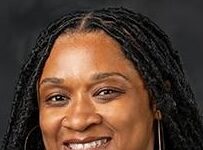 Dan Jones, chancellor of the University of Mississippi, has announced a new plan to foster a more inclusive and welcoming environment on campus for all racial and ethnic groups. The plan came about after a year of study by campus groups and outside consultants.
Dan Jones, chancellor of the University of Mississippi, has announced a new plan to foster a more inclusive and welcoming environment on campus for all racial and ethnic groups. The plan came about after a year of study by campus groups and outside consultants.
Among the steps that will be taken are:
1. The hiring of a vice chancellor-level position for diversity and inclusion.
2. The establishment of a set of standards for diversity and engagement that will be drafted for the university to follow moving forward.
3. Dealing squarely with the issue of race while also addressing other dimensions of diversity.
4. The implementation of a symbolic and formal dedication of all new students to the ideals of inclusion and fairness to which the University of Mississippi is devoted.
5. The offering of more history, putting the past into context, and telling more of the story of Mississippi’s struggles with slavery, secession, segregation and their aftermath. Chancellor Jones stated that buildings that bear the name of Confederate heroes or White politicians from the era of Jim Crow may be adorned with plaques explaining their history.
Perhaps the most controversial part of the plan is addressing the use of the term “Ole Miss” to refer to the university. The term is a common nickname that is even used in all university email addresses. But to some the term Ole Miss brings back memories of not too long ago when Confederate flags were waved, the song “Dixie” was sung, and the mascot Colonel Reb roamed the sidelines at football games. Chancellor Jones stated that “Ole Miss” and the “University of Mississippi” both will be used in appropriate contexts going forward, with particular emphasis going to “Ole Miss” in athletics and as a representation of the university’s spirit.












I repect your attention into setting new hope for change at Miss.
God’s Grace, Rev. Henry Wester
I am so proud to hear about the progress toward acceptance, inclusion, and diversity (aid) for excellence. I believe in President Jones, his leadership, and his wisdom as a visionary for my alma mater. Having been an officer of diversity and inclusion for 34 years, there is no denying that change is here. The complexion and complexity of our campuses are changing, so why not prepare for it. Change is a constant. It is perceived that the state of Mississippi takes longer to change but when it does the change is significant and fitting change for the good of the people it serves. I love my Mississippi.
If you need help or committee support in driving this initiative forward, please take advantage of my 34 years of work experience and guidance in this area. I would be happy to serve.
Warmest regards,
Hattie M, Myles, Ph.D.